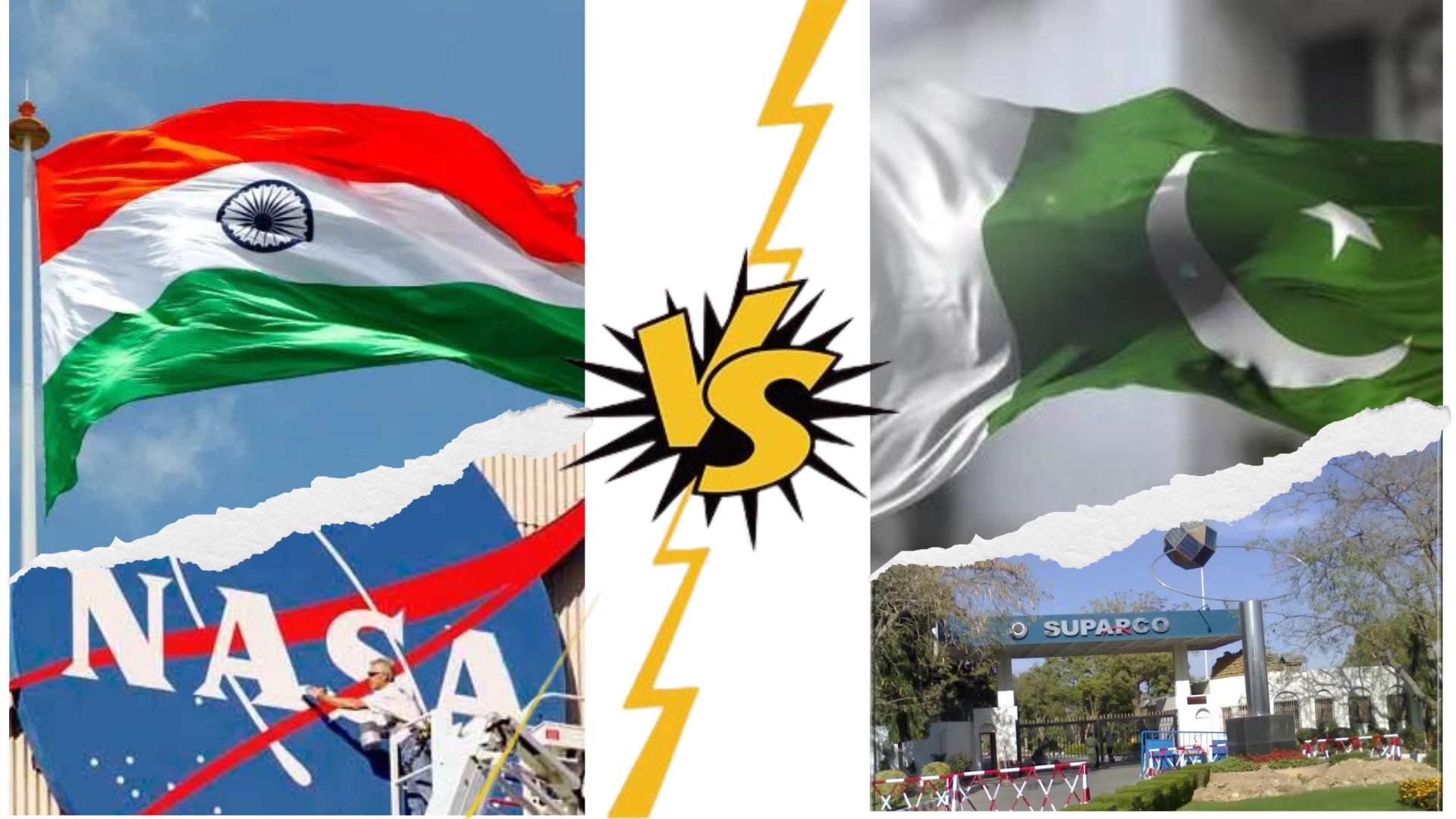In just a few decades, the Indian Space Research Organisation (ISRO) has risen to global prominence, achieving milestones that place it among the world’s top space agencies. From humble beginnings—carrying rocket parts on bicycles and ferrying satellites on bullock carts—ISRO has come a long way, even successfully sending an orbiter to Mars on its first attempt. However, there was a time when India trailed behind Pakistan in the space race.
The Early Days: Pakistan’s Head Start
Pakistan established its space program in the early 1960s, founding the Space and Upper Atmosphere Research Commission (SUPARCO) in 1961, a full eight years before ISRO came into existence. Pakistan was the fourth country in Asia, after the USSR, Japan, and Israel, to venture into space. However, while ISRO has gone on to achieve remarkable success, SUPARCO’s journey has been far less impressive.
The Cold War’s Role in SUPARCO’s Rise
The space race between the United States and the Soviet Union in the late 1950s and early 1960s provided a significant boost to SUPARCO. The success of the Soviet Union’s Sputnik I in 1957 marked the dawn of the space age and spurred the United States to ramp up its space efforts. During this time, Washington sought partners near the Indian Ocean, and Pakistan seized the opportunity.
SUPARCO benefitted greatly from American support, receiving sounding rockets to explore the upper atmosphere. These early successes provided Pakistan with essential knowledge in rocket control and preparation.
The Visionary Behind SUPARCO: Abdus Salam
SUPARCO owes much of its early success to Pakistan’s first Nobel laureate, Prof. Abdus Salam. Before political and religious challenges sidelined him, Salam was a key figure in Pakistan’s scientific community, advising the government on various technological advancements, including the space program.
Under Salam’s guidance, SUPARCO launched its first rocket, Rahbar-1, in June 1962—an achievement that preceded the establishment of ISRO.
India’s Response: The Birth of ISRO
The success of Pakistan’s space endeavors prompted India to accelerate its own space program. However, even before SUPARCO’s establishment, Vikram Sarabhai, an ambitious Parsi visionary, had dreams of taking India to space. Sarabhai, supported by India’s first Prime Minister Jawaharlal Nehru, played a crucial role in establishing the Indian National Committee for Space Research (INCOSPAR) in 1962, which later became ISRO in 1969.
Sarabhai’s diplomatic efforts brought international support to India’s space program, leading to the launch of India’s first sounding rocket in 1963, from the Thumba Equatorial Rocket Launching Station.
The Rise of ISRO: From Bullock Carts to Mars
Despite initial skepticism and limited resources, ISRO has achieved significant milestones. From launching the Satellite Instructional Television Experiment (SITE) in 1975 to sending the Mars Orbiter Mission (Mangalyaan) in 2013, ISRO has consistently pushed the boundaries of space exploration.
ISRO’s success can be attributed to its focus on leveraging existing technologies and building a strong foundation in scientific education and research. This approach has allowed India to compete with global space agencies like NASA and China’s CNSA.
SUPARCO’s Decline: What Went Wrong?
In contrast, SUPARCO’s journey has been marked by missed opportunities and a lack of consistent focus. According to Pakistani scientist Prof. Pervez Hoodbhoy, Pakistan’s weak education system, particularly in physics and mathematics, contributed to SUPARCO’s struggles. Additionally, Pakistan’s prioritization of military technology over space exploration diverted resources and attention from its space program.
The sidelining of Abdus Salam, due to his Ahmadiyya faith, also dealt a significant blow to SUPARCO. While India celebrated and supported its scientists, Pakistan’s treatment of Salam reflected a broader issue of neglecting scientific talent.
Lessons Learned: The Importance of Persistence
Today, Pakistan still lacks indigenous satellite launching capabilities and aims to develop this technology by 2040. The comparison between ISRO and SUPARCO serves as a reminder that persistence, investment in research and development, and support for scientific talent are crucial for long-term success in space exploration.
India’s journey from launching rockets on bullock carts to reaching Mars is a testament to what can be achieved with vision, commitment, and consistent support for science and technology. Meanwhile, Pakistan’s experience underscores the importance of maintaining a strong foundation in education and valuing scientific contributions, regardless of political or religious considerations.







